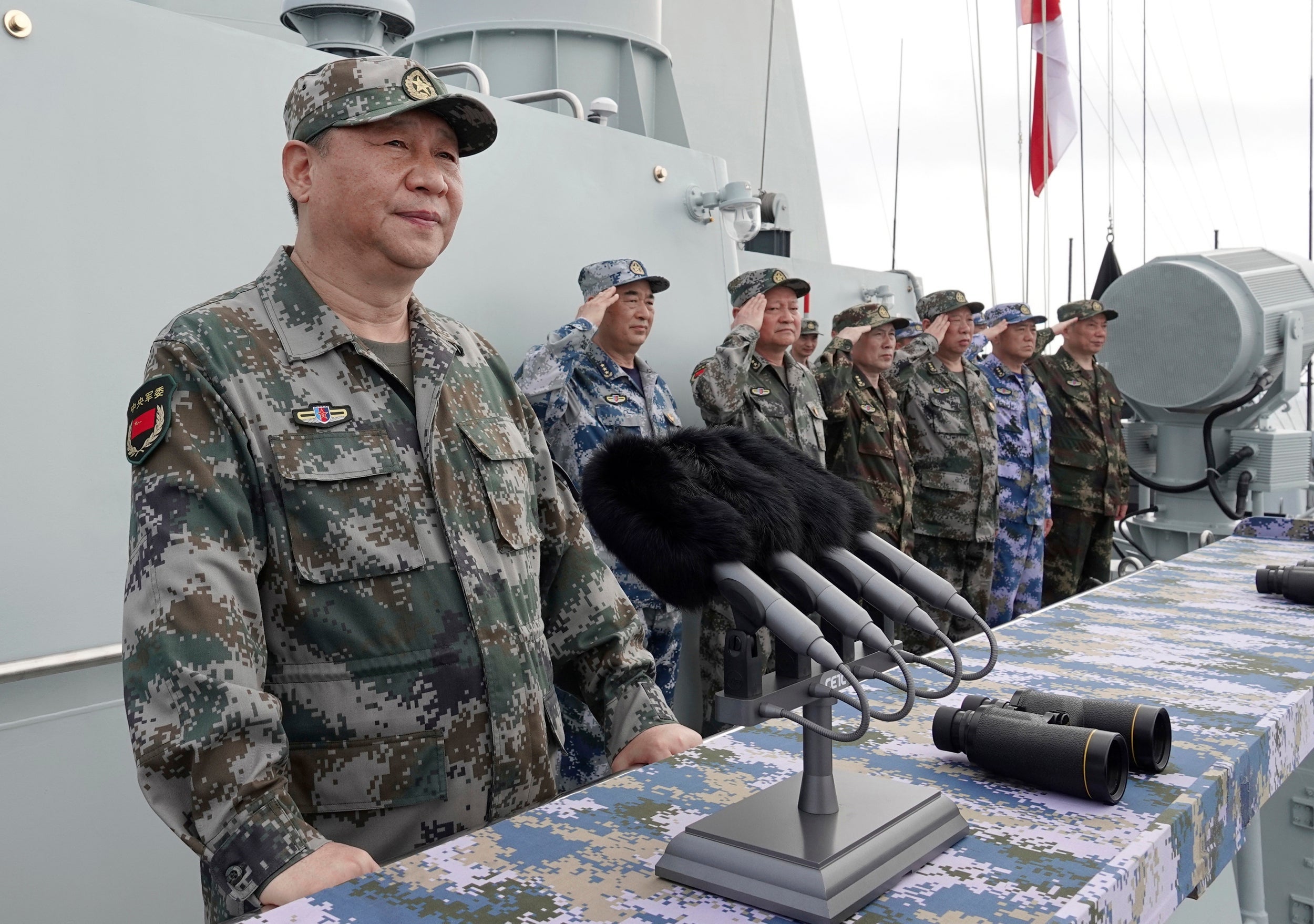China ‘ready to go to war’ if Taiwan tries to gain independence, major defence ministry report says
Report lists Donald Trump’s US among ‘prominent destabilising factors’ in first defence white paper of Xi Jinping’s presidency

Your support helps us to tell the story
From reproductive rights to climate change to Big Tech, The Independent is on the ground when the story is developing. Whether it's investigating the financials of Elon Musk's pro-Trump PAC or producing our latest documentary, 'The A Word', which shines a light on the American women fighting for reproductive rights, we know how important it is to parse out the facts from the messaging.
At such a critical moment in US history, we need reporters on the ground. Your donation allows us to keep sending journalists to speak to both sides of the story.
The Independent is trusted by Americans across the entire political spectrum. And unlike many other quality news outlets, we choose not to lock Americans out of our reporting and analysis with paywalls. We believe quality journalism should be available to everyone, paid for by those who can afford it.
Your support makes all the difference.China says it is “ready to go to war” over the issue of Taiwan’s independence, according to a defence ministry report that provides a rare insight into the country’s military strategic priorities.
The US, which provides arms to Taiwan, was accused of “undermining global strategic stability” and was named at the top of a list of “prominent destabilising factors” in the white paper, the first of its kind to be released by the Chinese government since Xi Jinping came to power.
Presenting the document, defence ministry spokesperson Wu Qian said it was still China’s goal to achieve a peaceful reunification with Taiwan, a territory that split from the Communist Party-ruled mainland in 1949 and is in all practical senses run as an independent democratic nation.
“However, we must firmly point out that seeking Taiwan independence is a dead end,” Wu told reporters.
“If there are people who dare to try to split Taiwan from the country, China’s military will be ready to go to war to firmly safeguard national sovereignty, unity, and territorial integrity,” he said.
China’s defence ministry has released 10 policy white papers since 1998, but Wednesday’s was the first since the 18th National Party Congress in 2012, officials said.
Since then there have been “profound changes” to the international security environment, the document notes.
“The US has adjusted its national security and defence strategies, and adopted unilateral policies,” China said in the document. “It has provoked and intensified competition among countries, significantly increased its defence expenditure ... and undermined global strategic stability.”
China would itself implement “moderate and steady” growth in defence spending, the document revealed, but claimed this was low compared to other major economies. “There is still a wide gap between China’s defence expenditure and the requirements for safeguarding national sovereignty, security, and development interests,” it said.
Alongside a resolve to contain the issue of “Taiwan independence”, China also listed the threats of what it calls separatist forces in Tibet and the far west region of Xinjiang.
On the latter, the report claimed central paramilitary police have helped Xinjiang authorities “take out 1,588 violent terrorist gangs and capture 12,995 terrorists”.
The UN has criticised the internment of around 1 million minority Muslims in Xinjiang “re-education camps”, part of what China calls a counterterrorism campaign. Former detainees say people are being arbitrarily detained on the basis of their beliefs and subject to political indoctrination.
And while the white paper said China was “exercis[ing] its national sovereignty to build infrastructure and deploy necessary defensive capabilities on the islands and reefs in the South China Sea”, defence ministry spokesperson Wu denied reports of a secret deal with Cambodia for access to the strategically located Ream Naval Base on the Gulf of Thailand.
“China and Cambodia have in the past carried out positive exchanges and cooperation on military drills, personnel training and logistics,” he said. “This kind of cooperation does not target any third party.”
Additional reporting by agencies
Join our commenting forum
Join thought-provoking conversations, follow other Independent readers and see their replies
Comments